Current Project: 2024 - 2027
RLA 7/028 – Strengthening Regional Capabilities on the Application of Nuclear and Isotopic Techniques to Increase Knowledge about Stressors that Affect Marine and Coastal Sustainable Management (ARCAL CLXXXIX)
Previous Projects:
RLA 7/025 – Strengthening Capacities in Marine and Coastal Environments Using Nuclear and Isotopic Techniques (2020-2023).
RLA 7/022 – Strengthening Regional Monitoring and Response for Sustainable Marine and Coastal Environments (ARCAL CXLV) (2018-2019).
Participating Institutions:
LARA – Universidade Federal Fluminense – Brazil


Research Areas::
- Ocean Acidification.
- Chemical Contamination.
- Harmful Algal Blooms (HABs) and Marine Biotoxins.
- Microplastic contamination.
THE PROBLEM
Brazil has several challenges with respect to marine-coastal environments that affect its sustainable development and that are related to human activities, such as the high growth of the coastal population, predatory fishing, chemical and microbial contamination, abusive dumping of nutrients, habitat degradation, biodiversity loss and the impacts of large-scale climate change. These environmental stressors have led to ocean acidification (imbalance caused by reduced Ph levels in the oceans due to absorption of CO2 from the atmosphere), harmful algal blooms and heavy metal pollution, petroleum derivatives, plastic waste, etc. Among them, microplastics have become one of the main concerns in Brazil, endangering the conservation and sustainable use of our oceans, watersheds and marine resources.
Microplastics are particles less than 5 mm in size from the fragmentation or manufacture of plastic materials for industrial or domestic use. However, this material has been massively used by societies since 1950, without an adequate management plan or elimination strategy. One of the main consequences of this omission is the pollution of the oceans by these particles, since, in this environment, they become one of the most worrying, complex and difficult to manage pollutants in economic and socio-environmental terms.
Once in the ocean, microplastics are incorporated into different levels of the food chain: plankton, shellfish, fish, reptiles, shorebirds, mammals, and even humans. In addition, these residues act as vectors of heavy metals, toxins and microorganisms that are harmful to the health of living beings.
In this context, Brazil participates in the Research Network on Marine-Coastal Stressors in Latin America and the Caribbean (REMARCO), which identifies as a priority the investigation of the ecological, social and health impacts of various environmental stressors, including plastic waste.
INFORMATION FOR ACTION
REMARCO investigates and diagnoses the effects of marine-coastal damage in order to generate scientific information capable of supporting public policies. This is to effectively prevent and reduce current levels of ocean acidification, harmful algal blooms (HABs) and organic and inorganic pollutants, which is in line with the Sustainable Development Goals (SDG, United Nations): conserve and use sustainably the oceans, seas and marine resources.
In particular, the southeastern region of Brazil already has alarming rates of about 1,500 plastic waste (microplastics) per square meter on its beaches. Fernando de Noronha, a marine paradise, on the other hand, has up to 60 particles/m2. Harmful algal blooms that cause damage to marine beings and man are observed in Búzios (RJ), Arraial do Cabo (RJ) and Florianópolis (SC), for example. The corals of the Abrolhos Archipelago (BA) are being destroyed by the effects of ocean acidification. Therefore, Brazil urgently needs actions and public policies to prevent and reduce damage to its coastal marine environments.
Country Members:
Roberto Meigikos dos Anjos. Physicist PhD in Nuclear Physics.
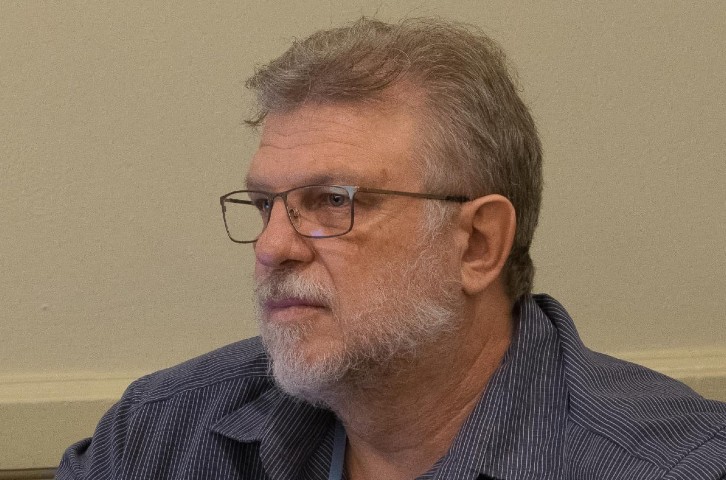
Laboratório de Radioecologia e Alterações Ambientais (LARA), Universidade Federal Fluminense, Niterói, RJ.
Role in the Project: National Coordinator Brazil.
Contact info: rmeigikos@id.uff.br / +55 21 2629-5843
LARA Coordinator. Experimental Nuclear Physicist who applies nuclear techniques, stable isotopes, related to issues of multidisciplinary environmental changes.
Alberto Sila Cid. Físico. Physical. PhD in Radiation Physics.

Centro Federal de Educação Tecnológica Celso Suckow da Fonseca (CEFET/RJ) – Campus Valença, RJ.
Role in the Project: Collaborator.
Contact info: asilvacid@gmail.com
Ph.D. in physics, professor at CEFET/RJ. He works in Radiation Physics applications. He has experience with nuclear analytical techniques and conducts research in Physics.
Thiago Corrêa Lacerda. Physicist PhD in Nuclear Physics.

Instituto Federal de Educação, Ciência e Tecnologia do Rio de Janeiro (IFRJ), Niterói, RJ.
Role in the Project:: Collaborator.
Contact info: thiago.lacerda@ifrj.edu.br
Doctor in Physics, IFRJ professor and works with Radiation Physics, Science Teaching and Inclusive Education.
Kita Chaves Damasio Macario. Physics PhD in Nuclear Physics.
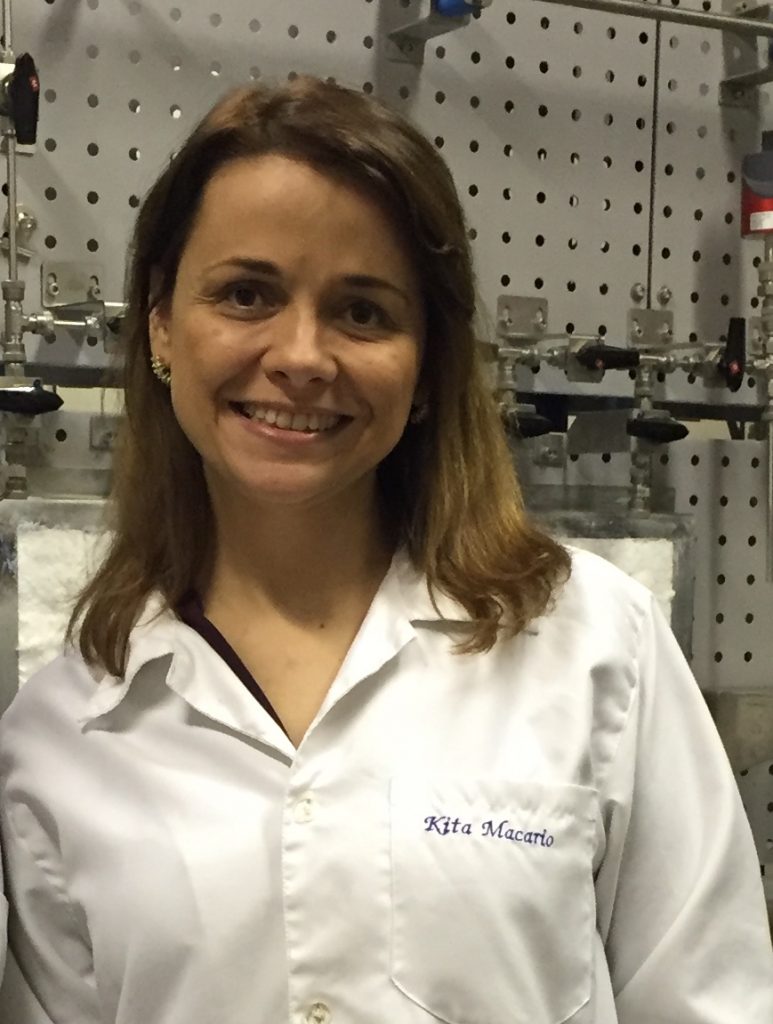
LAC, Universidade Federal Fluminense, Niterói, RJ.
Role in the Project: Collaborator.
Contact info: kitamacario@id.uff.br / +55 21 2629-5772
Coordinator of the Radiocarbon Laboratory (LAC), a laboratory responsible for the preparation of solid and liquid samples, including radiocarbon dating using 14C-AMS.
Cibele Bruno Zambone. Physics PhD in Nuclear Physics..
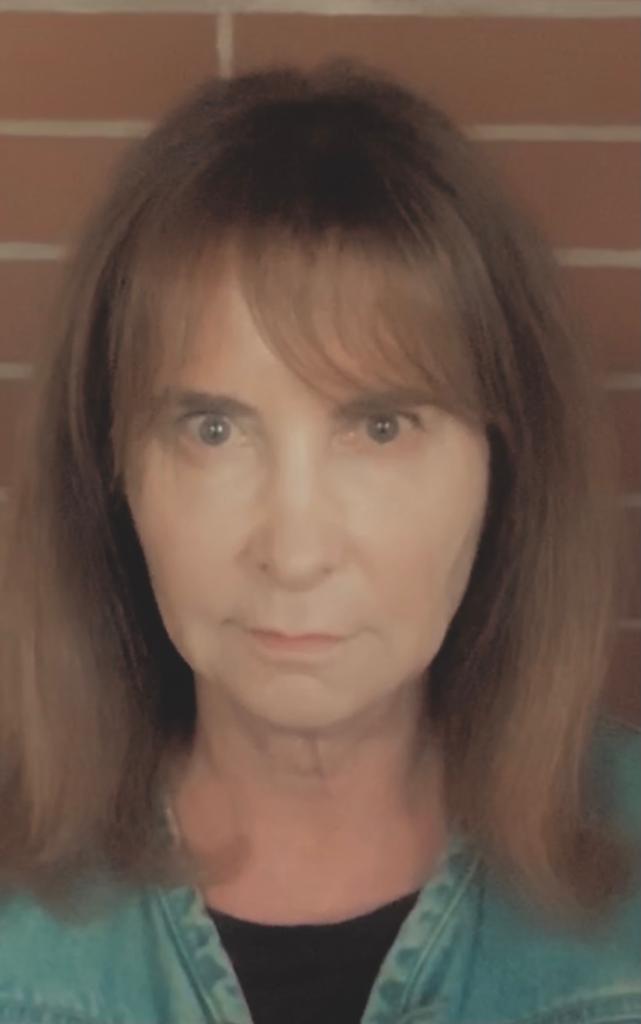
Instituto de Pesquisa Energéticas e Nucleares (IPEN/CNEN) , São Paulo, SP.
Role in the Project: Responsible for the preparation of solid and liquid samples, including EDXRF and NAA analysis.
Contact info: czamboni@ipen.br / +55 11 3133-9000
Nuclear Physicist with work in the area of Radioisotope Applications in health and the environment using Neutron Activation Analysis techniques, gamma spectrometry, beta and gamma spectroscopy and X-ray fluorescence. Supervisor of the Spectroscopy and Spectrometry Laboratory of the Radiaciones del IPEN /CNEN-SP and Editor of the site «Jovem Cientista».
Ricardo Coutinho. Biologist. PhD in Biology.

Instituto de Estudos do Mar Almirante Paulo Moreira (IEAPM), Arraial do Cabo, RJ.
Role in the Project: Collaborator.
Contact info: ricardo.coutinho@marinha.mil.br / +55 22 2622-9022
Coordinator Responsible for sampling, analysis of physicochemical parameters of seawater, microalgae (HABs), ocean acidification and microplastics.
Silvia Mattos Nascimento. Biological Scientist, PhD in Oceanography.

Universidade Federal do Estado do Rio de Janeiro (UNIRIO), Rio de Janeiro, RJ.
Role in the Project: Coordinadora Responsable de la toma de muestras, análisis de parámetros físico-químicos del agua de mar, microalgas (HABs), acidificación de los océanos y microplásticos.
Contact info: silvia.nascimento@unirio.br / +55 21 2244-5483
She is dedicated to research in the area of taxonomy, ecology, physiology and toxicology of marine microalgae, especially toxic benthic dinoflagellates. She has experience in microalgae cultivation and laboratory tests. She is in charge of taking samples of marine microalgae from UNIRIO.
Elvis Joacir De França. Agricultural Engineer, PhD in Applied Ecology.

Centro Regional de Ciências Nucleares do Nordeste (CRCN-NE/CNEN), Recife, PE.
Role in the Project: Responsible for the Application of the GRS technique.
Contact info: ejfranca@cnen.gov.br / +55 81 3797-8045
Agronomist with a specialization in Environmental Management, he works in environmental monitoring involving chemical elements and radionuclides in ecosystems.
Mariana Vezzone Tosta Rabello. Agricultural and Environmental Engineer, PhD in Geology.

Laboratório de Radioecologia e Alterações Ambientais (LARA), Universidade Federal Fluminense, Niterói, RJ.
Role in the Project: Collaborator.
Contact info: mvezzone@id.uff.br
Develops a project that aims to improve the efficiency of water use and nitrogen fertilization associated with strategies for adaptation and mitigation of climate change in agriculture.
Renan Pereira Cardoso. Physicist PhD in Nuclear Physics.

Laboratório de Radioecologia e Alterações Ambientais (LARA), Universidade Federal Fluminense, Niterói, RJ.
Role in the Project: Collaborator.
Contact info: renancardoso@id.uff.br
Doctor in Nuclear Physics, he is currently developing projects on the movement of sediments, organic and inorganic contaminants, and the marine food chain using isotopes, infrared, X-ray fluorescence and gamma spectrometry.
Marcelo Costa Muniz. Physicist, PhD in Marine Biology.

Laboratório de Radioecologia e Alterações Ambientais (LARA), Universidade Federal Fluminense, Niterói, RJ.
Role in the Project: Collaborator.
Contact info: marcelocostamuniz@id.uff.br
Involved in the study of stable isotopes with application in the area of organic matter evaluation of glacial environments and in the influence of oil spills on the northeast coast of Brazil.
João Paulo de Sá Felizardo. Biologist, PhD in Marine Biology.

Laboratório de Radioecologia e Alterações Ambientais (LARA), Universidade Federal Fluminense, Niterói, RJ.
Role in the Project: Collaborator.
Contact info: joaofelizardo@id.uff.br
Doctor in Marine Biology in Coastal Environments. Develops a project that evaluates the impact and dispersion in marine environments of mineralization residues from the collapse of Fundão dams.
Carlos Villamil Echeverri. Marine Biologist, MSc in Marine Biology.

Laboratório de Radioecologia e Alterações Ambientais (LARA), Universidade Federal Fluminense, Niterói, RJ.
Role in the Project: Collaborator.
Contact info: cvillamil@id.uff.br
Doctoral candidate in Marine Biology and Coastal Environments. Develops retrospective analysis of sedimentary accumulation, preservation and degradation of organic matter in mangroves in Brazil and Colombia related to global changes.
Ruan das Flores de Azevedo. Scientific Biologist, MSc in Teaching of Natural Sciences.

Laboratório de Radioecologia e Alterações Ambientais (LARA), Universidade Federal Fluminense, Niterói, RJ.
Role in the Project: Collaborator.
Contact info: ruanfazevedo@gmail.com
Master in teaching of Natural Sciences, teacher of the Secretary of the State of Education of Rio de Janeiro. He has experience in planning and developing strategies for Environmental Education.
Lara Novis Lemos Machado. Historian.

Laboratório de Radioecologia e Alterações Ambientais (LARA), Universidade Federal Fluminense, Niterói, RJ.
Role in the Project: Collaborator.
Contact info: laranovis@id.uff.br
Postgraduate student in Environmental Project Management. It develops research in the area of human sciences focused on environmental changes. She is currently dedicated to the sustainable watershed management project using the participatory innovation practice methodology.
Rodrigo Sardinha Ltterbach Veiga. Physical.
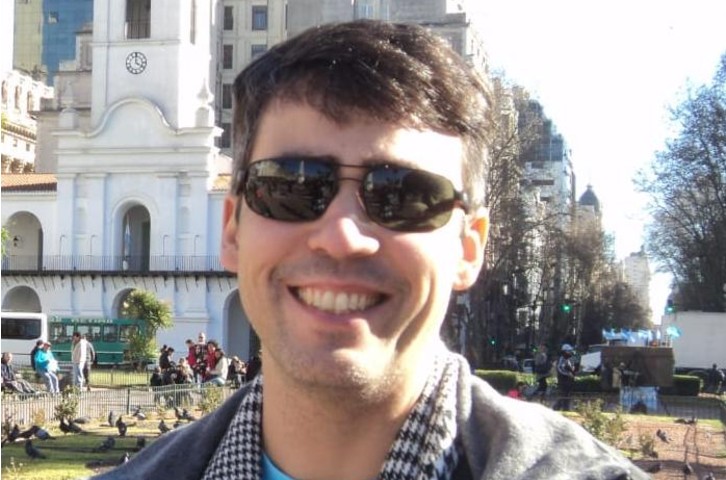
Laboratório de Radioecologia e Alterações Ambientais (LARA), Universidade Federal Fluminense, Niterói, RJ.
Role in the Project: Collaborator.
Contact info: rveiga@id.uff.br
Master's student in Marine Biology and Coastal Environments, he develops scientific research aimed at evaluating the influences of the oil spill on the fish of the northeast coast, linking it to human health and socioeconomic damage.
Arthur da Silva Merat Alves. Physics student.
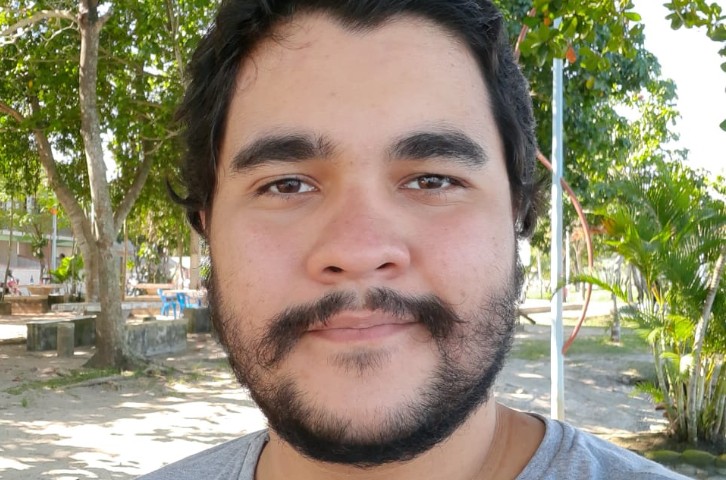
Laboratório de Radioecologia e Alterações Ambientais (LARA), Universidade Federal Fluminense, Niterói, RJ.
Role in the Project: Collaborator.
Contact info: arthurmerat@id.uff.br
Degree in Water Resources and Environment Engineering from the Fluminense Federal University. Student of scientific initiation in the field of contamination by metals in water masses and sediments.
Bárbara Barrosos Issa Cardozo. Undergraduate student in Physics.
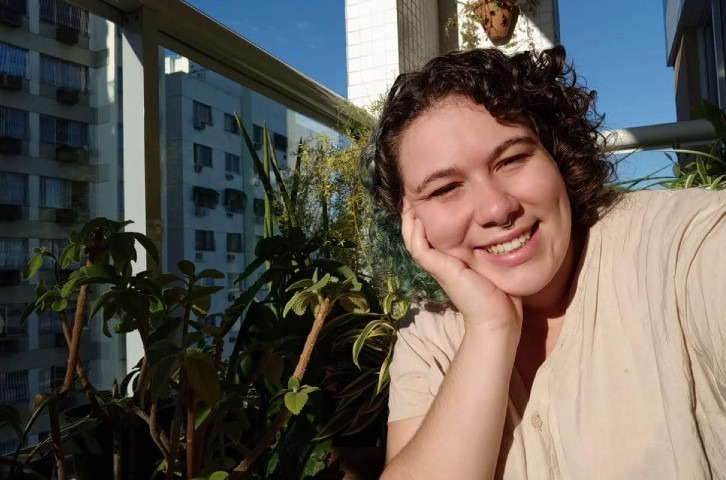
Laboratório de Radioecologia e Alterações Ambientais (LARA), Universidade Federal Fluminense, Niterói, RJ.
Role in the Project: Collaborator.
Contact info: barbaracardozo@id.uff.br
Undergraduate student in Physics. She carries out scientific initiation in the area of microplastics in marine environments.
Larissa Dutra Chao. Undergraduate student in Physics.
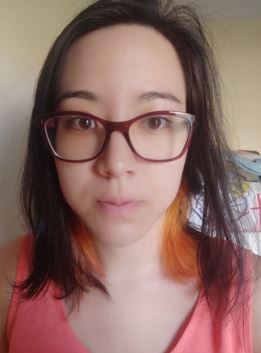
Laboratório de Radioecologia e Alterações Ambientais (LARA), Universidade Federal Fluminense, Niterói, RJ.
Role in the Project: Collaborator.
Contact info: larissachao@id.uff.br
Undergraduate student in Physics. She has been in scientific initiation for two years in the area of applied nuclear physics in studies on the accumulation of toxins in the food chain.
Pedro Henrique Cavalcante de Andrade. Physics student.

Laboratório de Radioecologia e Alterações Ambientais (LARA), Universidade Federal Fluminense, Niterói, RJ.
Role in the Project: Collaborator and Focal Point of Communication.
Contact info: pedroandrade@id.uff.br
Physics student (Bachelor). It works with scientific dissemination of the work carried out by LARA.
Sônia Silva Gurgel do Amaral. Physics student.

Laboratório de Radioecologia e Alterações Ambientais (LARA), Universidade Federal Fluminense, Niterói, RJ.
Role in the Project: Collaborator.
Contact info: soniaamaral@id.uff.br
Physics student (Bachelor). She carries out scientific initiation and currently works in the area of microplastics in marine environments.
Thamires Alves Silva Bernardo. Physics student.

Laboratório de Radioecologia e Alterações Ambientais (LARA), Universidade Federal Fluminense, Niterói, RJ.
Role in the Project: Collaborator.
Contact info: thamiresbernardo@id.uff.br
Physics student (Bachelor) at the Universidade Federal Fluminense. Develops a scientific research project at LARA related to the efficiency of water use related to strategies for adaptation and mitigation of climate change in agriculture.
Progress and Challenges
In order to generate capacities and strengthen professional skills, scientific dissemination and collaborative work among the country members of REMARCO, the Laboratório de Radioecologia e Alterações Ambientais (LARA) de la Universidad Federal Fluminense (UFF) uses nuclear, isotopic and to support the research carried out by the Latin American Network of countries. Among its teaching and scientific research activities, LARA taught the Microplastic Sampling and Analysis course in 2018. In addition to training technicians and researchers from 14 countries in Latin America and the Caribbean, it was possible to standardize the microplastic sample collection procedure and the application of the Mid-Infrared Spectroscopy (MIRS) technique in the characterization of the types and origins of microplastic debris. Currently, LARA is responsible for the analysis of these samples, becoming a center of excellence in microplastic research in Latin America and the Caribbean.
As an immediate result of this investment, LARA is supplying the web platform «Regional Microplastics Plataform – REMARCO» with important physical and chemical parameters of microplastic waste that, together with geospatial analyzes ( GIS), facilitate socio-environmental decision-making and allow the dissemination of progress made by country members.
Studies are also being carried out at LARA on the impacts and effects of ocean acidification, the proliferation of toxic algae and contamination by organic and inorganic agents, using stable isotope techniques, X-ray fluorescence and alpha and gamma radiation spectrometry. These are current issues that require the use of new technologies and the training of more technicians and researchers, capable of contributing to the formulation of new appropriate public policies for our country.
